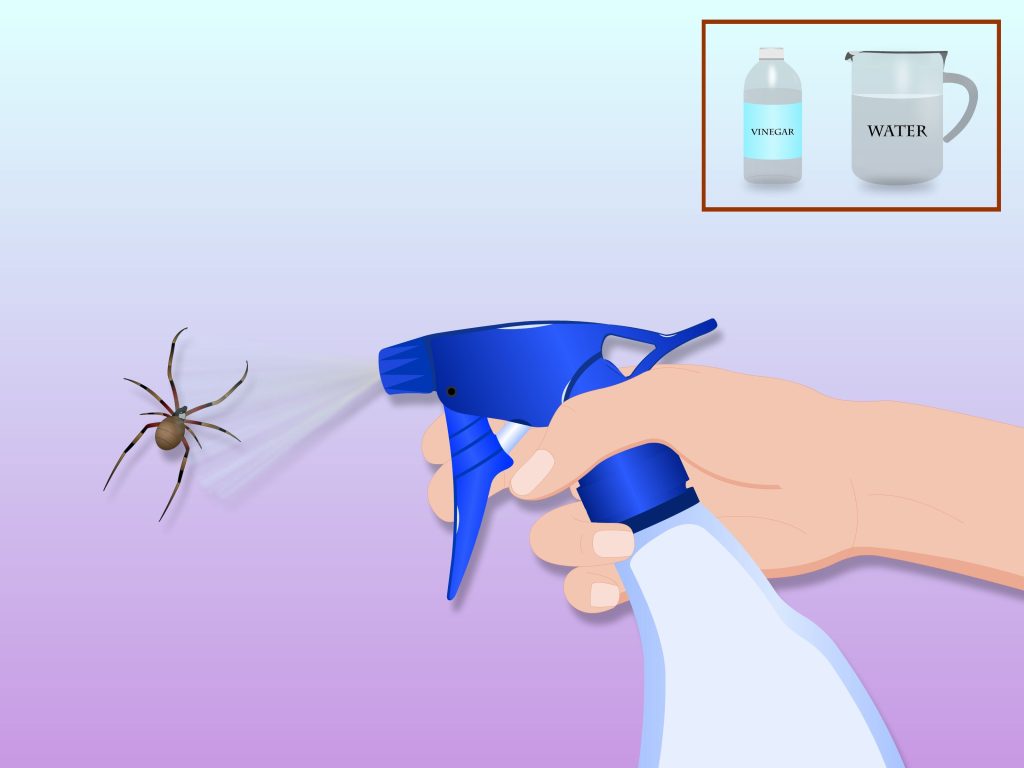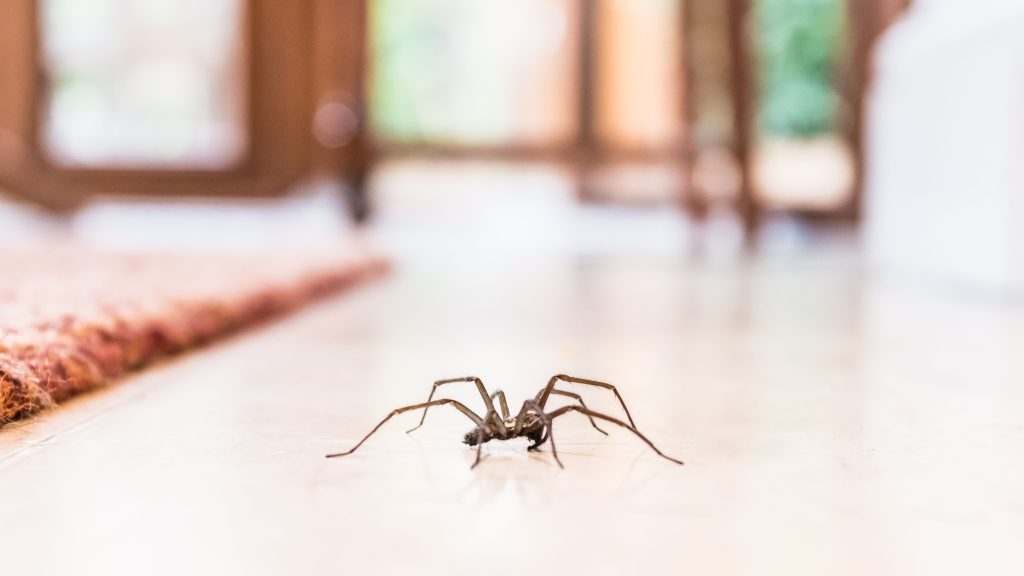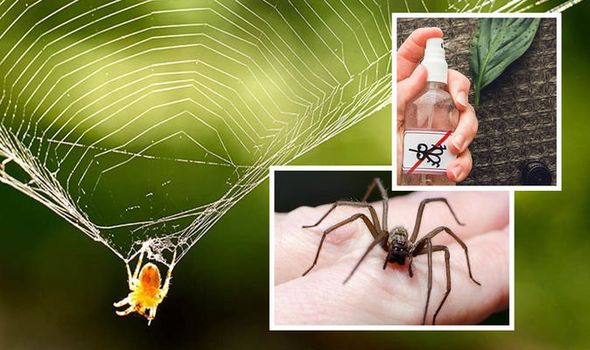Yes, many fly sprays available in the UK are formulated to kill a variety of insects, including spiders. Fly sprays typically contain chemicals that are toxic to insects upon contact.
However, when sprayed directly onto spiders, the chemicals in the spray can disrupt their nervous system and lead to paralysis or death.
However, the effectiveness of fly sprays on spiders can vary depending on the type of spray, the species of spider, and the size of the spider.
Additionally, some larger or more resilient spider species may not be as easily affected by the chemicals in fly sprays.
What is fly spray, and how does it work to control and repel flies?
Fly spray, a common insecticide, serves as a potent solution to control and repel flies. By deploying a blend of active chemicals.
Explanation of Fly Spray Composition and Mechanism of Action
Fly sprays, also known as insecticides, are formulated to eliminate flying and crawling insects, including flies, mosquitoes, and sometimes spiders.
Moreover, these sprays usually contain active ingredients that disrupt the nervous systems or physiological processes of the target insects. Common mechanisms of action include:
Neurotoxic Effects: Many fly sprays contain neurotoxic chemicals that affect the nervous system of insects. In addition, these compounds can interfere with nerve signal transmission, leading to paralysis and eventually death.
Contact and Ingestion Poisoning: Insects can be affected by fly sprays upon contact with treated surfaces or by ingesting the toxic chemicals while grooming themselves.
Growth Regulators: Some fly sprays contain insect growth regulators (IGRs) that disrupt the growth and development of insects. Moreover, prevent them from reaching maturity or reproducing.
Different Types of Fly Sprays Available in the Market

There are various types of fly sprays available, each with its own formulation and intended use:
Aerosol Sprays: These are ready-to-use sprays that come in pressurized cans. They are convenient for spot treatments and indoor use.
Residual Sprays: Residual fly sprays are designed to leave a lasting residue on surfaces. They are effective for both immediate control and long-term prevention.
Concentrated Solutions: These require dilution before use. They are often used for larger areas and can be applied using garden sprayers.
Natural and Organic Sprays: Some fly sprays are formulated using natural ingredients such as essential oils. While they might have a milder impact on the environment, their efficacy can vary.
Common Active Ingredients and Their Impact on Insects
Fly sprays contain a range of active ingredients, each with specific effects on insects:
Pyrethroids: These synthetic chemicals are derived from natural pyrethrins found in chrysanthemum flowers. Additionally, they affect the nervous system of insects and are widely used due to their effectiveness against a range of pests.
Organophosphates: These chemicals inhibit the activity of enzymes in the nervous system, leading to paralysis and death. Moreover, they are effective but can be more toxic to humans and animals.
Neonicotinoids: These insecticides target the nicotinic acetylcholine receptors in insects’ nervous systems. Hence, they are systemic, meaning they can be absorbed by plants and ingested by insects that feed on the plants.
Insect Growth Regulators (IGRs): IGRs disrupt the growth and development of insects, affecting their ability to molt and reproduce. Additionally, they provide long-term control by targeting the life cycle of insects.
What are some common spider species found in the United Kingdom?
The UK is home to a variety of spider species, some of which are more common than others. These include:
Common House Spider (Tegenaria domestica): Often found indoors, these spiders are large and build funnel-shaped webs in corners and crevices.
Garden Spider (Araneidae family): Additionally, these are large orb-weaver spiders commonly seen in gardens. They create intricate circular webs to catch flying insects.
Money Spider (Linyphiidae family): These tiny spiders are often associated with good luck in folklore. They create small webs and are found in vegetation.
Brief Description of Their Habitats and Behavior
Spider habitats and behaviors can vary widely among species:
Indoor Spiders: Common house spiders tend to seek shelter indoors, often in dark and undisturbed areas.
Outdoor Spiders: Garden spiders build their webs in gardens and wooded areas to catch flying insects.
Web Builders: Spiders like orb-weavers create intricate webs to trap prey, while others like money spiders use silk threads to create small sheet-like webs.
What are the Reasons for Wanting to Control Spider Populations?
Controlling spider populations can be motivated by various factors:
Fear and Phobias: Arachnophobia, the fear of spiders, is common. Some people prefer to reduce spider numbers to alleviate anxiety.
Hygiene and Aesthetics: Spiders can create messy webs that affect the appearance of indoor and outdoor spaces.
Allergies: While rare, some individuals might be allergic to spider bites, necessitating the need to manage spider populations.
Reducing Insect Prey: Spiders are natural predators that can help control insect populations. However, if their numbers become excessive, people might want to manage them to avoid disruptions to local ecosystems.
How Can You Control Spiders?
Spider control methods encompass a range of approaches to manage spider populations:
Physical Removal: Manual methods involve physically removing spiders and their webs using vacuum cleaners, brooms, or handheld tools.
Exclusion: Seal cracks, gaps, and openings to prevent spiders from entering buildings. Regular cleaning and decluttering can also eliminate spider hiding spots.
Natural Predators: Introducing beneficial predators like certain species of wasps, birds, and even other spiders can help control spider numbers.
Chemical Control: Insecticides, including fly sprays, are commonly used to target spiders and their prey.
Comparison of Different Approaches: Chemical vs. Non-Chemical
Comparing chemical and non-chemical approaches helps evaluate their pros and cons:
Non-Chemical:
Safer Environment: Non-chemical methods are generally less harmful to humans, pets, and the environment.
Long-Term Solutions: Techniques like exclusion and regular cleaning provide sustainable, ongoing control.
Ecosystem Preservation: Natural predator introduction maintains ecological balance.
Chemical:
Immediate Results: Chemical methods like fly sprays can quickly reduce spider populations.
Convenience: Sprays are easy to apply and can cover large areas efficiently.
Targeted Approach: Chemicals can specifically target pests without affecting non-target species.
Importance of Choosing Effective and Safe Methods
Selecting the right spider control method involves considering efficacy, safety, and environmental impact:
Integrated Pest Management (IPM): Adopting a holistic approach that combines multiple strategies for balanced and effective spider control.
Minimizing Chemical Use: Prioritize non-chemical methods to minimize potential risks to health and the environment.
Responsible Application: If using chemical methods, follow product instructions, use proper protective gear, and ensure proper ventilation.
What Are Alternative Methods For Spider Control?

Introduction to Alternative Approaches for Managing Spider Populations
Physical Methods (Vacuuming, Sealing Entry Points)
Vacuuming: Regular vacuuming can remove spiders, eggs, and webs, reducing their population indoors.
Sealing Entry Points: Prevent spiders from entering by sealing cracks, gaps, and openings in buildings.
Natural Predators (Introducing Beneficial Insects)
Beneficial Insects: Introducing natural predators like predatory insects or birds can help control spider numbers.
Ecosystem Balance: Promoting natural predation maintains a healthier ecological balance.
Removing Attractants (Cleaning and Decluttering)
Cleaning: Regular cleaning eliminates spider prey (insects) and reduces attractive hiding spots.
Decluttering: Removing clutter minimizes spaces where spiders can build webs and establish habitats.
FAQ’s
Can raid fly spray kill spiders?
Raid fly spray is primarily designed for flying insects like flies, and while it may have some effect on spiders, it’s not the most effective solution for spider control.
Can you use fly raids on spiders?
While Raid fly spray can be used on spiders, it might not yield the best results. Opting for spider-specific sprays or alternative methods is often more effective for controlling spiders.
Is there a spray to kill spiders in the UK?
Yes, there are various spider sprays available in the UK that are formulated to specifically target spiders. These products can be found in stores and online for effective spider control.
What spray can kill spiders?
There are dedicated spider sprays on the market that are formulated to effectively kill spiders. These sprays typically contain ingredients designed to target and eliminate spiders upon contact.
Do any sprays kill spiders?
Yes, there are several sprays designed to kill spiders. Look for products labeled specifically for spider control, as these are formulated to effectively target and eliminate spiders while adhering to safety guidelines.
Conclusion
In conclusion, the effectiveness of fly spray in controlling spiders in the UK is influenced by a multitude of factors. While fly sprays can provide immediate results, it’s crucial to consider the potential health risks, environmental consequences
In addition, the diversity of spider species and their ecological importance underline the importance of informed decision-making in pest management.
Alternative methods, such as physical removal, natural predator introduction, and habitat modification, offer safer and more environmentally friendly approaches to controlling spider populations.
Moreover, these methods align with integrated pest management principles, which emphasize holistic and sustainable strategies to strike a balance between effective control and ecosystem preservation.











